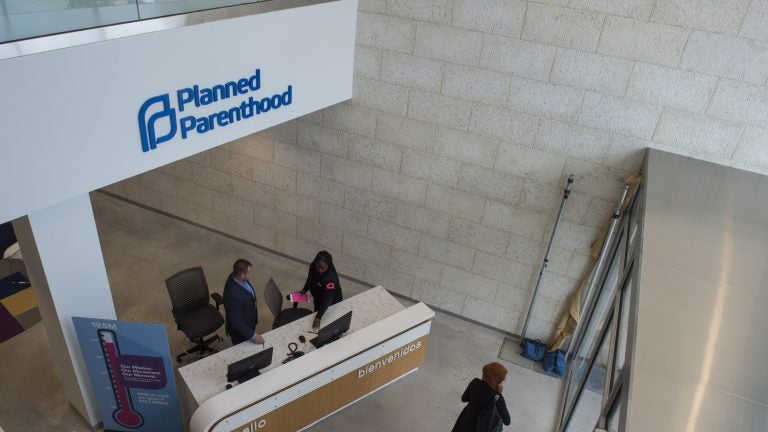Supreme Court declines key Planned Parenthood case

Planned Parenthood opened its new headquarters in Washington, D.C., in September. The Supreme Court declined to take up a key case that is a big win for Planned Parenthood. (The Washington Post/The Washington Post/Getty Images)
The U.S. Supreme Court declined to take a case with big implications for women’s health care, Planned Parenthood and whether states can block people from using Medicaid for health care services at Planned Parenthood.
The result is that people can use Medicaid money for pregnancy-related Planned Parenthood services. Now, this is not for abortion-related services. Federal law prohibits people to use Medicaid money for abortion.
But the court not taking up this case means states cannot prohibit people from using Medicaid funds for other Planned Parenthood services, like screenings, ultrasounds and counseling.
The genesis of this case goes back to the discredited videos purporting to show Planned Parenthood officials inappropriately looking to sell fetal parts. After the videos, Louisiana and Kansas moved to block people from using Medicaid funds for Planned Parenthood services. Planned Parenthood sued, and lower courts ruled in favor of Planned Parenthood.
Louisiana and Kansas appealed to the Supreme Court. But the Supreme Court, by not taking up the case, leaves the lower-court rulings in place.
Three conservative justices dissented – Clarence Thomas, Samuel Alito and Neil Gorsuch dissented. Notably, the court’s two other conservatives — Chief Justice John Roberts and Brett Kavanaugh — noted no dissents.
The court, led by Roberts, this term in particular, has tried to fly below the radar, and this is another example of that.
9(MDAzMzI1ODY3MDEyMzkzOTE3NjIxNDg3MQ001))




